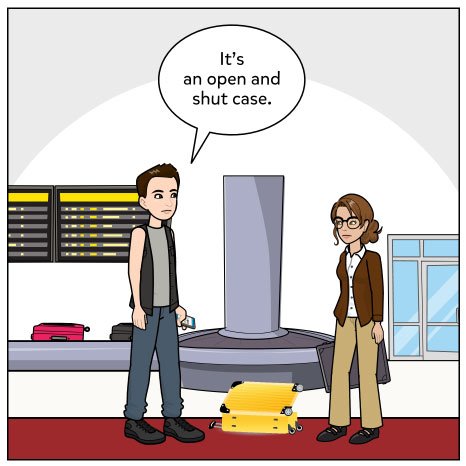|
|
|
|---|---|
| close vs shut |
As a verb, to shut can usually be replaced by to close. You can shut a door / window / suitcase, or you can close a door / window /suitcase.
I say "close" usually because if you're "shut out", it means you can't get in. If you use 'close' when you conclude something, you can't replace it with 'shut'.
The past tense of shut is shut, but the past tense of close is closed. Don't confuse the adjective closed with the past tense, closed: When someone shuts / closes a door, it becomes a closed door. In bad weather we don't shut airports or roads, we close them. You should close your mouth when you're eating, but if someone tells you to shut your mouth, you had better stop talking. As a person, if you shut up, you stop talking. As a business, if you close down, you stop trading. Case closed. !Note - Don't confuse the adjective close (as in near) and the verb "to close". |
More Mistakes |
|

